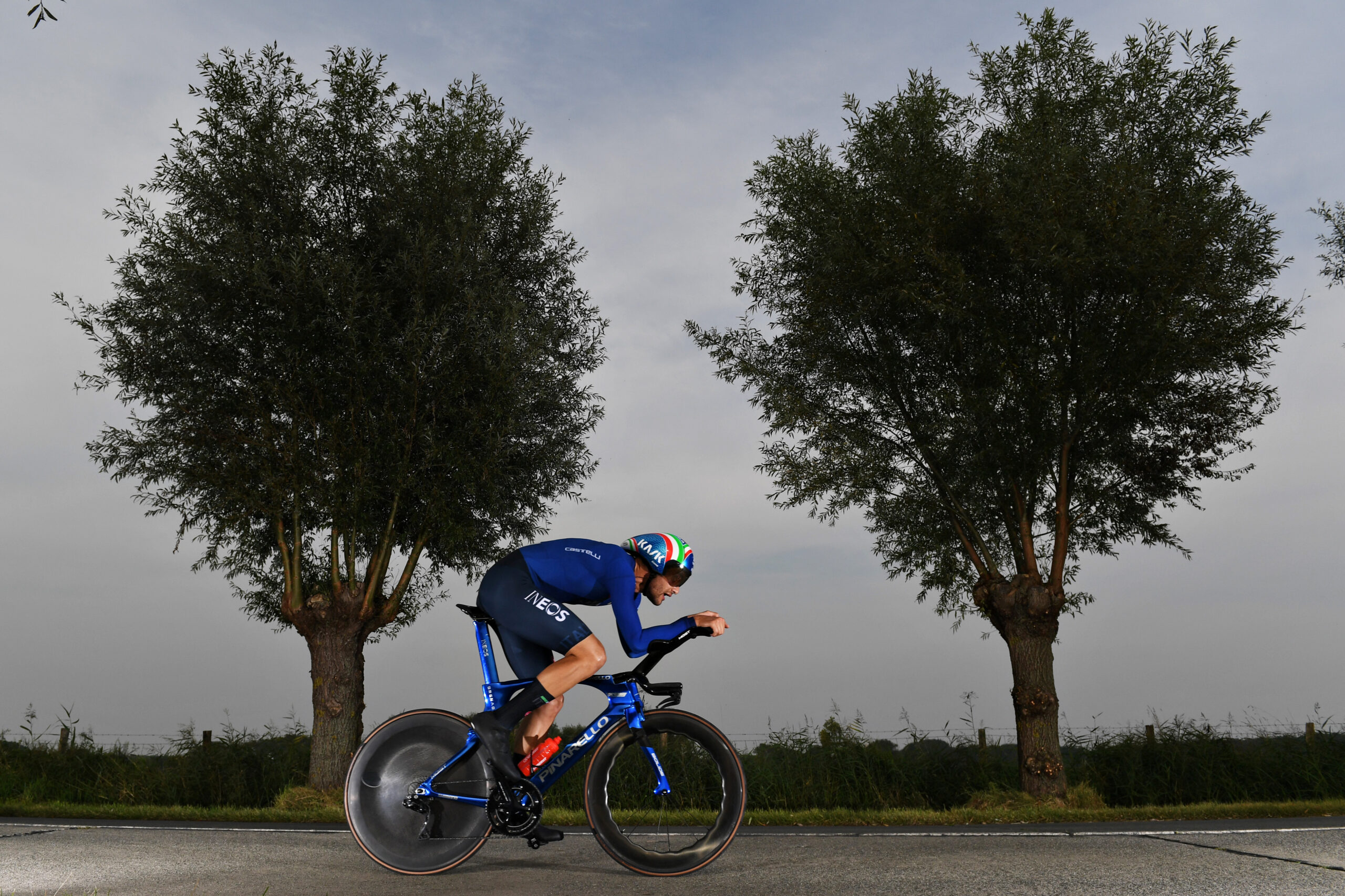What Makes the UCI Road World Championships So Special
The UCI Men’s Road World Championships is the pinnacle of professional cycling, attracting the world’s top cyclists to compete for the coveted rainbow jersey. With a rich history dating back to 1927, the championships have evolved into a global spectacle, showcasing the best of cycling talent from around the world. The event’s prestige is unmatched, with the winner earning the right to wear the iconic rainbow jersey for the next 12 months.
The UCI Road World Championships is more than just a bike race; it’s a celebration of cycling culture, innovation, and athleticism. The event brings together national teams, sponsors, and fans from diverse backgrounds, creating a vibrant and electric atmosphere. The championships have been hosted in various locations worldwide, from the picturesque landscapes of Italy to the challenging terrain of the United States.
The UCI Men’s Road World Championships is a true test of endurance, strategy, and skill, pushing cyclists to their limits over a grueling course. The event features a range of disciplines, including the individual time trial, team time trial, and road race, each requiring unique strengths and tactics. The championships have been won by some of the greatest cyclists in history, including legends like Eddy Merckx, Bernard Hinault, and Lance Armstrong.
As the UCI Men’s Road World Championships continues to grow in popularity, it remains a beacon for cycling enthusiasts and athletes alike. The event’s global reach and appeal have inspired a new generation of cyclists, promoting the sport’s values of hard work, dedication, and fair play. Whether you’re a seasoned cycling fan or just discovering the sport, the UCI Road World Championships is an event that promises to deliver excitement, drama, and unforgettable moments.
How to Watch the UCI Road World Championships: A Beginner’s Guide
With the UCI Men’s Road World Championships attracting a global audience, fans can now access the event through various platforms. For those new to the sport, navigating the different broadcast options can be overwhelming. This guide provides an overview of how to watch the UCI Road World Championships, making it accessible to new fans and enthusiasts.
TV Broadcasts: The UCI Road World Championships is broadcast in over 100 countries worldwide, with major networks such as Eurosport, NBC Sports, and SBS providing comprehensive coverage. Check local listings for broadcast times and channels.
Live Streaming Options: For those without access to traditional TV broadcasts, live streaming options are available. The UCI website and mobile app offer live streaming of the event, as well as on-demand replays. Additionally, platforms like YouTube, Facebook, and Twitter provide live coverage and highlights.
Social Media Coverage: Social media plays a significant role in the UCI Road World Championships, with official accounts on Twitter, Instagram, and Facebook providing real-time updates, behind-the-scenes insights, and exclusive content. Follow the official UCI accounts to stay up-to-date with the latest news and results.
Mobile Apps: The UCI mobile app provides a comprehensive guide to the event, including live results, start lists, and course information. The app is available for both iOS and Android devices.
Online Cycling Platforms: Online cycling platforms like Cyclingnews, VeloNews, and BikeRadar provide in-depth coverage of the UCI Road World Championships, including news, results, and analysis.
Local Coverage: For fans attending the event in person, local coverage includes big screens, live commentary, and on-site activities. Check the official UCI website for information on local coverage and event schedules.
Unpacking the UCI Road World Championships Course: Challenges and Strategies
The UCI Road World Championships course is a true test of endurance, strategy, and skill, pushing cyclists to their limits over a grueling route. The course is carefully designed to challenge the world’s top cyclists, with a mix of flat sections, steep climbs, and technical descents. In this article, we’ll delve into the specifics of the course, discussing its unique features, challenges, and the strategies employed by top cyclists to tackle the route and gain a competitive edge.
The course typically features a combination of urban and rural sections, with cyclists navigating through city centers, countryside roads, and mountainous terrain. The route is often characterized by its unpredictable weather conditions, with cyclists facing wind, rain, and extreme temperatures. The course’s unique features, such as cobblestone sections, steep climbs, and technical descents, require cyclists to be adaptable and skilled in various disciplines.
One of the key challenges of the UCI Road World Championships course is its ability to separate the contenders from the pretenders. The course is designed to test cyclists’ endurance, with long stretches of flat terrain followed by steep climbs and technical descents. Cyclists must be able to maintain a high pace over a prolonged period, while also conserving energy for the critical moments of the race.
To gain a competitive edge, top cyclists employ various strategies, including careful pacing, tactical positioning, and clever use of equipment. Cyclists must be able to read the course, anticipating the challenges and opportunities that lie ahead. They must also be able to adapt to changing weather conditions, using their experience and skill to navigate the course safely and efficiently.
The UCI Road World Championships course is a true test of cycling prowess, requiring cyclists to be skilled, strategic, and physically fit. By understanding the course’s unique features and challenges, cyclists can gain a competitive edge, while fans can appreciate the skill and endurance required to compete at the highest level.
The Science of Cycling: How Technology Impacts Performance
Professional cycling is a sport that is deeply intertwined with technology. The UCI Men’s Road World Championships is no exception, with cyclists relying on cutting-edge innovations to gain a competitive edge. From advancements in bike design to the use of aerodynamics and athlete monitoring, technology plays a crucial role in shaping the performance of cyclists at the UCI Road World Championships.
One of the most significant technological advancements in professional cycling is the development of aerodynamic bikes. These bikes are designed to reduce air resistance, allowing cyclists to maintain high speeds while expending less energy. The use of aerodynamic bikes has become increasingly prevalent in the UCI Road World Championships, with many top cyclists opting for these high-tech machines.
Another key area where technology impacts performance is in the field of athlete monitoring. The use of wearable devices, such as heart rate monitors and GPS trackers, allows cyclists to track their physical condition and optimize their training. This data can be used to identify areas for improvement, enabling cyclists to fine-tune their performance and gain a competitive edge.
The UCI Road World Championships also sees the use of advanced materials and manufacturing techniques in bike design. The use of lightweight materials, such as carbon fiber, allows for the creation of bikes that are both strong and lightweight. This enables cyclists to maintain high speeds while minimizing energy expenditure.
In addition to these technological advancements, the UCI Road World Championships also sees the use of innovative training methods. The use of virtual reality and simulation technology allows cyclists to train in a highly realistic and immersive environment, enabling them to prepare for the demands of the competition.
The impact of technology on performance at the UCI Road World Championships is undeniable. By embracing these innovations, cyclists can gain a competitive edge and push the boundaries of human performance. As technology continues to evolve, it will be exciting to see how it shapes the future of professional cycling.
Meet the Favorites: Top Contenders for the UCI Road World Championships
The UCI Men’s Road World Championships is a showcase of the world’s top cyclists, with a talented field of competitors vying for the coveted rainbow jersey. In this article, we’ll profile the top contenders for the UCI Road World Championships, highlighting their strengths, weaknesses, and past performances, and analyzing their chances of winning the coveted title.
One of the top favorites for the UCI Road World Championships is Peter Sagan, the Slovakian cyclist who has dominated the sport in recent years. Sagan is a versatile rider who excels in a variety of disciplines, from sprinting to climbing. He has a strong track record in the UCI Road World Championships, having won the title in 2015 and 2016.
Another top contender is Julian Alaphilippe, the French cyclist who has been in impressive form this season. Alaphilippe is a skilled climber who has won several major races, including the Tour de France and the Vuelta a España. He has a strong team behind him, and his aggressive riding style makes him a formidable opponent.
Other top contenders for the UCI Road World Championships include Tom Dumoulin, the Dutch cyclist who won the title in 2017, and Chris Froome, the British cyclist who has won several major races, including the Tour de France and the Vuelta a España. Both Dumoulin and Froome are skilled climbers who have a strong track record in the UCI Road World Championships.
In addition to these top contenders, there are several other cyclists who could potentially win the UCI Road World Championships. These include riders like Alejandro Valverde, the Spanish cyclist who has won several major races, and Geraint Thomas, the British cyclist who won the Tour de France in 2018.
The UCI Road World Championships is a highly competitive event, and any one of these top contenders could potentially win the title. However, based on their past performances and current form, Peter Sagan and Julian Alaphilippe are likely to be among the top favorites for the event.
The Road to the Rainbow Jersey: A Look at the Qualification Process
The UCI Men’s Road World Championships is a prestigious event that attracts the world’s top cyclists. To compete in this event, cyclists must go through a rigorous qualification process. In this article, we’ll explain the qualification process for the UCI Road World Championships, including the UCI World Ranking system, national team selections, and the role of wildcard entries.
The UCI World Ranking system is a key component of the qualification process for the UCI Road World Championships. This system ranks cyclists based on their performance in UCI-sanctioned events throughout the season. The top-ranked cyclists in each country are eligible to compete in the UCI Road World Championships.
National team selections are also an important part of the qualification process. Each country’s national cycling federation selects a team of cyclists to represent their country in the UCI Road World Championships. The selection process typically takes into account a cyclist’s performance in UCI-sanctioned events, as well as their overall experience and skill level.
In addition to the UCI World Ranking system and national team selections, wildcard entries also play a role in the qualification process. Wildcard entries are invitations extended to cyclists who may not have qualified through the UCI World Ranking system or national team selections. These entries are typically awarded to cyclists who have shown exceptional performance in UCI-sanctioned events or who have a strong track record in the sport.
The qualification process for the UCI Road World Championships is designed to ensure that the best cyclists in the world are competing in the event. By using a combination of the UCI World Ranking system, national team selections, and wildcard entries, the UCI can ensure that the competition is fierce and the racing is exciting.
For cyclists who
Behind the Scenes: The Logistics of Hosting the UCI Road World Championships
Hosting the UCI Men’s Road World Championships is a complex and challenging task that requires meticulous planning, coordination, and execution. The event involves thousands of athletes, officials, and spectators, and requires a significant amount of infrastructure, including roads, venues, and accommodations.
The planning process for the UCI Road World Championships typically begins several years in advance, with the host city and organizing committee working closely with the UCI to ensure that all logistical and technical requirements are met. This includes everything from course design and construction to accommodation and transportation arrangements.
One of the biggest challenges of hosting the UCI Road World Championships is ensuring that the course is safe and suitable for competition. This involves conducting thorough risk assessments, implementing safety measures, and ensuring that the course is compliant with UCI regulations.
In addition to the course, the host city must also provide a range of other infrastructure, including venues for the opening and closing ceremonies, press conferences, and other events. The city must also ensure that there are sufficient accommodations for athletes, officials, and spectators, as well as transportation arrangements to and from the course.
The impact of the UCI Road World Championships on the host city can be significant, with the event generating millions of dollars in revenue and attracting thousands of visitors. However, the event also requires a significant investment of time, money, and resources, and can have a major impact on local communities.
Despite the challenges, hosting the UCI Road World Championships can be a rewarding and enriching experience for the host city and its residents. The event provides a unique opportunity for the city to showcase its culture, hospitality, and infrastructure, and can leave a lasting legacy for the local community.
Legacy of the UCI Road World Championships: Inspiring the Next Generation
The UCI Men’s Road World Championships has a lasting impact on the sport of cycling, extending far beyond the actual event itself. The championships play a significant role in inspiring young athletes, promoting cycling development programs, and leaving a lasting legacy in host cities.
For young cyclists, the UCI Road World Championships is a source of inspiration and motivation. Seeing the world’s top cyclists compete at the highest level can spark a passion for the sport and encourage young athletes to pursue their own cycling dreams. Many professional cyclists have credited the UCI Road World Championships with inspiring them to take up the sport, and the event continues to play a vital role in promoting cycling development programs around the world.
In addition to inspiring young athletes, the UCI Road World Championships also leaves a lasting legacy in host cities. The event brings significant economic benefits, with thousands of visitors and spectators generating revenue for local businesses and communities. The championships also provide a unique opportunity for host cities to showcase their culture, hospitality, and infrastructure, promoting tourism and economic development in the region.
The UCI Road World Championships also has a lasting impact on the sport of cycling itself. The event drives innovation and progress in the sport, with cyclists and teams continually pushing the boundaries of what is possible. The championships also provide a platform for the UCI to promote its values and mission, including the development of cycling as a global sport and the promotion of clean and fair competition.
As the UCI Men’s Road World Championships continues to grow and evolve, its legacy will only continue to expand. The event will remain a source of inspiration for young athletes, a driver of innovation and progress in the sport, and a showcase for the world’s top cyclists. Whether you’re a seasoned cycling fan or just discovering the sport, the UCI Road World Championships is an event that is sure to captivate and inspire.







